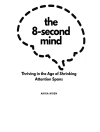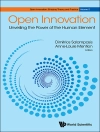Chapter 12 is available Open Access under CC-BY-NC-ND licence.
Conversations around diversity, equity, and inclusion in science communication are in danger of generating much concern without effecting change and systematic transformations.
This radical volume addresses these circular discourses and reveals the gaps in the field. Putting the spotlight on the marginalised voices of so-called ‚racialised minorities‘, and those from Global South regions, it interrogates the global footprint of the science communication enterprise.
Moving beyond tokenistic and extractive approaches, this book creates a space for academics and practitioners to challenge issues around race and sociocultural inclusion, providing mutual learning, paradigm-shifting perspectives, and innovative ways forward for the science communication advancement agenda.
This work has received Special Recognition from the CIMUSET Award Committee.
Inhaltsverzeichnis
Introduction – Elizabeth Rasekoala
Part I: The Practice(s) of Science Communication: Challenges and Opportunities for Race, Gender, Language and Epistemic Diversity, Representation and Inclusion
1. Inclusion Is More Than an Invitation: Shifting Science Communication in a Science Museum – C. James Liu, Priya Mohabir, Dorothy Bennett
2. Communicating Science On, to, and With Racial Minorities During Pandemics – John Noel Viana
3. Breaking the Silos, Science Communication for All – Amparo Leyman Pino
4. Building Capacity for Science Communication in South Africa: Afrocentric Perspectives From Mathematical Scientists – Mpfareleni Rejoyce Gavhi-Molefe and Rudzani Nemutudi
Part II: Science Communication in the Global South: Leveraging Indigenous Knowledge, Cultural Emancipation and Epistemic Renaissance for Innovative Transformation
5. Challenges of Epistemic Justice and Diversity in Science Communication in Mexico: Imperatives for Radical Re-Positioning Towards Transformative Contexts of Social Problem Solving, Cultural Inclusion and Trans-Disciplinarity – Susana Herrera-Lima and Sofía Gutiérrez-Ramírez
6. Past, Present and Future: Perspectives on the Development of an Indigenous Science Communication Agenda in Nigeria – Temilade Sesan and Ayodele Ibiyemi
7. Harnessing Indigenous Knowledge Systems for Socially Inclusive Science Communication: Working Towards a “Science for Us, With Us” Approach to Science Communication in the Global South – Konosoang Sobane, Wilfred Lunga and Lebogang Setlhabane
8. Indigenous Science Discourse in the Mainstream: The Case of ‘Mātauranga and Science’ in New Zealand Science Review – Ocean Ripeka Mercier and Anne-Marie Jackson
Part III: The Decolonisation Agenda in Science Communication: Deconstructing Eurocentric Hegemony, Ideology and Pseudo-Historical Memory
9. Decolonising Initiatives in Action: From Theory to Practice at the Museum of Us – Brandie Macdonald and Micah Parzen
10. Falling From Normalcy? Decolonisation of Museums, Science Centres & Science Communication – Mohamed Belhorma
11. African Challenges and Opportunities for Decolonised Research-Led Innovation and Communication for Societal Transformation – Akanimo Odon
12. Decolonising Science Communication in the Caribbean: Challenges and Transformations in Community-Based Engagement With Research on the ABCSSS Islands – Tibisay Sankatsing Nava, Roxanne-Liana Francisca, Krista T. Oplaat and Tadzio Bervoets
Part IV: The Globally Diverse History of Science Communication: Deconstructing Notions of Science Communication as a Modern Western Enterprise
13. Shen Kua’s Meng Hsi Pi T’an (c. 1095 CE): China’s First Notebook Encyclopaedia as a Science Communication Text – Ruoyu Duan, Biaowen Huang and Lindy A. orthia
14. Making Knowledge Visible: Artisans, Craftsmen, Printmakers and the Knowledge Sharing Practices of 19th-Century Bengal – Siddharth Kankaria, Anwesha Chakraborty and Argha Manna
15. Advancing Globally Inclusive Science Communication: Bridging the North-South Divide Through Decolonisation, Equity, and Mutual Learning – Elizabeth Rasekoala
Über den Autor
Elizabeth Rasekoala is the President of African Gong: The Pan-African Network for the Popularization of Science and Technology and Science Communication. She is the first African female recipient of an International Science Communication award, the NAT AWARD 2019, conferred by the Natural Science Museum of Barcelona.







